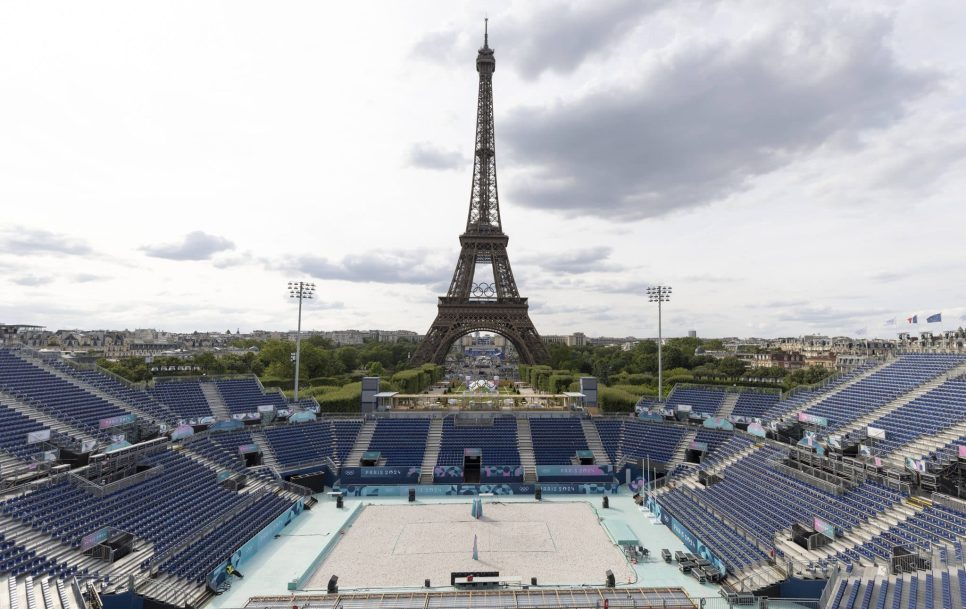What’s new sport-wise for Paris Olympics?
On July 26, the Paris Olympics will light up the world with 21 days of thrilling competition, featuring 329 medal events across 32 sports. While many of these sports will be familiar, Paris will also introduce some exciting new ones.
For the first time in Olympic history, breakdancing will take the stage. This dance style, born in the Bronx, New York in the 1970s, has now made its way to the grandest stage of all. Breakdancing’s roots are deeply embedded in hip-hop culture, thriving on the streets with unofficial rules.
Since the 1990s, however, the best dancers have been competing in formal events. Breakdancing first appeared at the 2018 Youth Olympics in Buenos Aires, and its growing popularity has now brought it to the main event – the Olympics.
Target: smoke your enemy
In Paris, 16 B-boys and B-girls – terms used in the breakdancing community – will compete in intense one-on-one battles. Last year’s world champion, American Victor Montalvo, explains, “Breaking is all about undermining your opponent. It’s all about making them look bad, or basically just smoking them – that’s what we say.”
Montalvo highlights that while each athlete has their signature moves, versatility and well-roundedness are crucial since they won’t know what music they’ll be dancing to until they hit the stage.
Judges will decide the winners based on technique, vocabulary, execution, musicality and originality. The first Olympic breakdancing champions will be crowned on August 10 at Place de la Concorde.
Question for the future?
However, these champions might also be the last, as breakdancing won’t be on the schedule for the 2028 Los Angeles Games. But given the International Olympic Committee’s embrace of street sports, that might change in the future.
Check out the highlights of the 2023 Breakdancing World Championships:
While no other new sports are debuting in Paris, there are significant changes to some existing ones. Weightlifting will see the number of weight categories reduced from 14 to 10. Canoeing has also undergone a makeover.
Previously, athletes competed individually in either canoe or kayak, but now a new event, kayak cross, will debut. Unlike traditional slalom, where competitors navigate a course one at a time, kayak cross sends four paddlers down the course simultaneously, with the top two advancing to the next round.
Hold your breath: the Eskimo roll
Athletes must navigate not just the gates and currents but also each other. Additionally, they must execute a mandatory Eskimo roll – a full 360-degree rotation into and out of the water – in the roll zone while the other competitors churn around them. Reigning kayak cross world champion Joe Clarke believes this change is a great move, engaging more spectators.
“A traditional slalom event can take more than an hour, meaning it can be pretty boring, but a kayak cross race can take 45 seconds. It’s the head-to-head element that gets people on the edge of their seats. The feedback is instant, first across the line. You see people have a terrible start but go from fourth to first in an instant. Or first to fourth,” said Clarke.
For a taste of kayak cross action, watch this:
Other changes include adjustments in sport climbing, which made its Olympic debut in Tokyo. In Paris, there will be two separate medal events. Previously, the combined event included lead climbing, speed climbing and bouldering. Now, speed climbing has been split off into its own event.
Sam Watson, a three-time World Cup speed climbing champion and world record holder, supports this decision: “I am definitely very happy it has gone to different disciplines and previously it was like trying to be a swimmer and a diver at the same time.”
“Imagine doing a sport where you do a cool dive from the top but then have to swim at max speed. Training-wise it was so different. I definitely couldn’t be the level I am at speed now had I also been training at boulder and especially lead because keeping up your endurance while keeping up your power for speed is a trade-off that doesn’t work.”
To see Watson’s world record performance in speed climbing, check out this:
In addition to sport climbing, skateboarding and surfing, which debuted in Tokyo, will also be part of the Paris Games. Skateboarding events will include both street and park disciplines for men and women. Surfing, however, will not take place in France but in one of France’s overseas territories – Tahiti, located 16,000 kilometers away.
Teahupo’o reef pass and the Pacific Ocean will play a crucial role in determining the Olympic surfing medals. Unlike the World Championships, which are decided over ten rounds, the Olympics will feature only four rounds, increasing the impact of chance (i.e., the waves).
Australian surfer Tyler Wright, competing in Paris, says that all surfers acknowledge this: “It’s not just who’s the best. We have the ocean. And the ocean is a whole different ballgame. It’ll deeply frustrate an audience, deeply enrage you, because you can be like, ‘Oh, that athlete is clearly better at this, and they didn’t get an opportunity.’ Or, ‘That athlete almost made two 10-point rides and they don’t go through because of the slightest wave altercations. In short, the best doesn’t always win and sometimes the ocean does choose. But a lot of us are OK with that.“
Global sport, indeed
In addition to Paris and Teahupo’o, 62 cities across France will host Olympic events – though this count is slightly inflated by including suburbs like Versailles as separate cities.
True host cities include Lyon, Saint-Etienne, Nice, Bordeaux, Nantes, and Marseille, which will host football matches. Lille will host basketball group matches and handball finals. Marseille will also host sailing events on the Mediterranean coast.
The XXXIII Summer Olympics in France begin on July 26 and run for 21 days, concluding on August 11.







